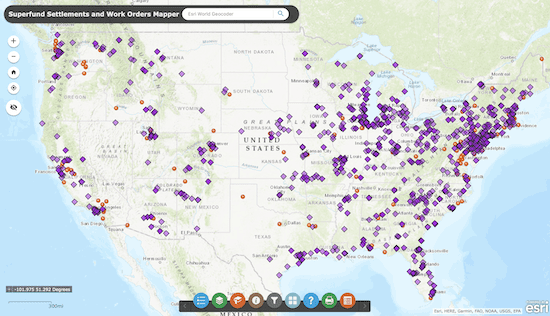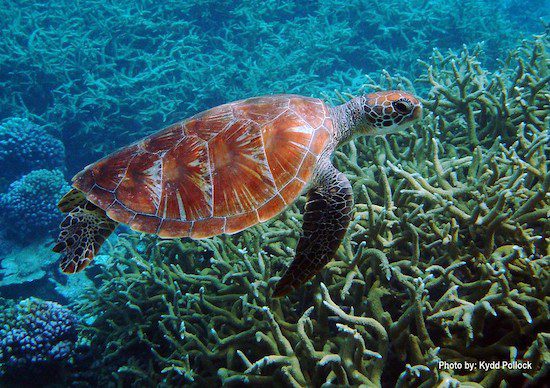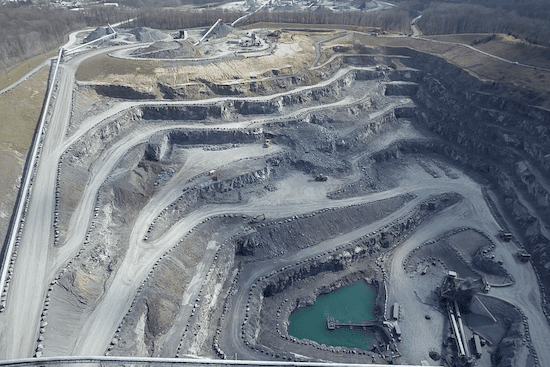


League of Conservation Voters: President Trump has ceased enforcement of virtually all environmental laws at the Environmental Protection Agency (EPA) during the COVID-19 pandemic. The policy is set to expire next month, but the administration may seek to extend it. EPA enforcement must be restored immediately. Every hour these suspensions are in place, pollution can be ramped up without punishment or accountability for Big Polluters. This is a grave danger to public health, particularly for communities of color, as well as Indigenous and low-income communities already suffering the worst consequences of environmental injustice. “By signing this executive order, Donald Trump is muzzling the voice of environmental justice communities, and continues to make clear his total disregard for those speaking out and fighting for racial justice and a sustainable environment,” Senator Chuck Schumer of New York said in a statement.
>>>Demand the EPA to restart enforcement immediately.
Citizens for Alternatives to Animal Research and Experimentation: Boston Children’s Hospital is killing mice and rats to develop an enhanced version of botulinum toxin, a product already in widespread use for cosmetic and medical use. These live animal tests are deadly, harrowing and completely unnecessary. Since 2011 scientists have developed an in vitro alternative to using mice and rats to study the safety and efficacy of botulinum toxin. Called the cell-based assay, it is considered superior to the mouse test, especially when investigating the cellular and intracellular effect of the toxin. Inexplicably, some scientists at Boston Children’s Hospital are still using barbaric animal tests. In one phase of the test, researchers dissected pregnant rats and removed their living embryos so they could extract cortical neurons from their brains. Another phase involved the egregious LD50 test, which injects enough toxin to determine which dose causes death in 50% of the animals. Botulinum toxin, which causes muscle paralysis, was injected into mice to test for local and systemic paralysis. Systemic paralysis causes a slow death as it gradually affects the respiratory muscles, causing mice to gasp hopelessly for air. Some will die by asphyxiation, but other mice will die because they cannot reach food or water. Their death is the result of dehydration and weight loss, and not the toxin per se, making the animal test even more unreliable, in addition to being incredibly inhumane.
>>>Urge Boston Children’s Hospital to stop paralyzing animals to test botulinum toxin and immediately employ the cell-based assay that was developed for this purpose.
PETA: Droughts and bushfires have decimated Australia’s landscapes and the animals living there, and yet the government continues to allow permits to be issued for the slaughter of wildlife. Extensive research by the Kangaroo Roundtable—a partnership of organizations, scientists, researchers and academics concerned about kangaroo conservation—indicates that reported Australian kangaroo populations are already overestimated. This would be concerning at any time, but after some 7.3 million hectares of land were burned in the recent blazes and an estimated 1 billion animals were killed in them, it’s more important than ever that we take the pressure off our native animals by favoring conservation over cruel killing. And make no mistake: the killing is cruel. Kangaroos are hunted after dark, increasing the risk that the shots won’t kill the animals instantly, subjecting them to long, painful deaths. Hunters are required to shoot at-foot joeys (kangaroo babies out of their mothers’ pouches) and decapitate or “crush the skull and destroy the brain” of those still in the pouch. The government must stop issuing permits to landholders and commercial hunters to kill native animals.
>>>Urge the New South Wales and Victoria governments to stop issuing permits to kill wildlife.

- New report underscores racial prejudices in Superfund sites (Marty Johnson, The Hill)
- Over 5,600 fossil fuel companies have taken at least $3 billion in COVID aid (Emily Holden, The Guardian)
- Facebook is exempting climate change misinformation from fact-checking (Rachel Frazin, The Hill)
- When it comes to animal rights, the philosophy of humanism has significant limitations (Robert Griffiths, Philosophy Now)
- The long history of murdered animal rights and environmental activists (Brandon Kirkwood, Vegan News Now)
- Growing farmland in Europe could reduce endangered bird habitat by up to 50% in the next century (University of East Anglia, ScienceDaily)
- UN expert calls out exploitation of Moroccan women on strawberry farms (Kristen Gianaris, Morocco World News)
- Big pharma’s u-turn threatens 450-million-year-old species on front line of coronavirus defense (Nishan Degnarain, Forbes)
- Mortality of trees triggered in 2018—the hottest, driest year on record—will continue for several years (University of Würzburg)
- Consumption of products derived from vulnerable wildlife species pervasive in Laos (San Diego Zoo Global, American Association for the Advancement of Science)
- Light pollution gives invasive cane toads a belly full of grub (Tokyo University of Agriculture and Technology, Phys.org)
- Microplastic fiber pollution in the ocean impacts larval lobsters at each stage of their development (Bigelow Laboratory for Ocean Sciences)
- Rising water temperatures could endanger the mating of many fish species (Alfred Wegener Institute, Helmholtz Centre for Polar and Marine Research)
Round of applause…

- Your sunscreen may be killing coral reefs—here are the brands to try instead (Rebecca Carhart and Dobrina Zhekova. Travel + Leisure)
- VIDEO: Ex-poachers are now protecting endangered sea turtles (Katie Valentine, Lady Freethinker)
- Hugh Laurie: How we treat animals now will be condemned in 100 years (Liam Pritchett, LIVEKINDLY)
- For the first time in nearly 50 years, endangered California condors have been spotted at Sequoia National Park (Kailyn Brown, The Los Angeles Times)
- Bali hosts first center to return captive dolphins to the wild (Sultan Anshori, Reuters)
- A London bakery turned vegan overnight after owner watched a video on the dairy industry (Liam Gilliver, Plant Based News)
- “Protect 30% of the planet for nature,” scientists urge in new report (Heather D’Angelo, Arizona State University)
- Global wildlife surveillance could provide early warning for next pandemic (Tamara Bhandari, Washington University School of Medicine)
- Four ways life as an animal activist taught me to change the world (Christine Jackson, PsychCentral)
- Fish alternatives are next big thing in vegan products (Elizabeth Green, Food Ingredients First)
- Plant-based diets can help promote healthful aging and mitigate the global burden of disease (Physicians Committee for Responsible Medicine)
Parting thought…

The environmental impact of open mining operations include land degradation, noise, dust, release of poisonous gases into the air, pollution of water sources and destruction of wildlife habitat. (Photo credit: Maryland Department of the Environment)
“Oh Beautiful for smoggy skies, insecticided grain,
For strip-mined mountain’s majesty above the asphalt plain.
America, America, man sheds his waste on thee,
And hides the pines with billboard signs, from sea to oily sea.”
―George Carlin
Earth | Food | Life (EFL) explores the critical and often interconnected issues facing the climate/environment, food/agriculture and nature/animal rights, and champions action; specifically, how responsible citizens, voters and consumers can help put society on an ethical path of sustainability that respects the rights of all species who call this planet home. EFL emphasizes the idea that everything is connected, so every decision matters.
Click here to support the work of EFL and the Independent Media Institute.
Questions, comments, suggestions, submissions? Contact EFL editor Reynard Loki at [email protected]. Follow EFL on Twitter @EarthFoodLife.